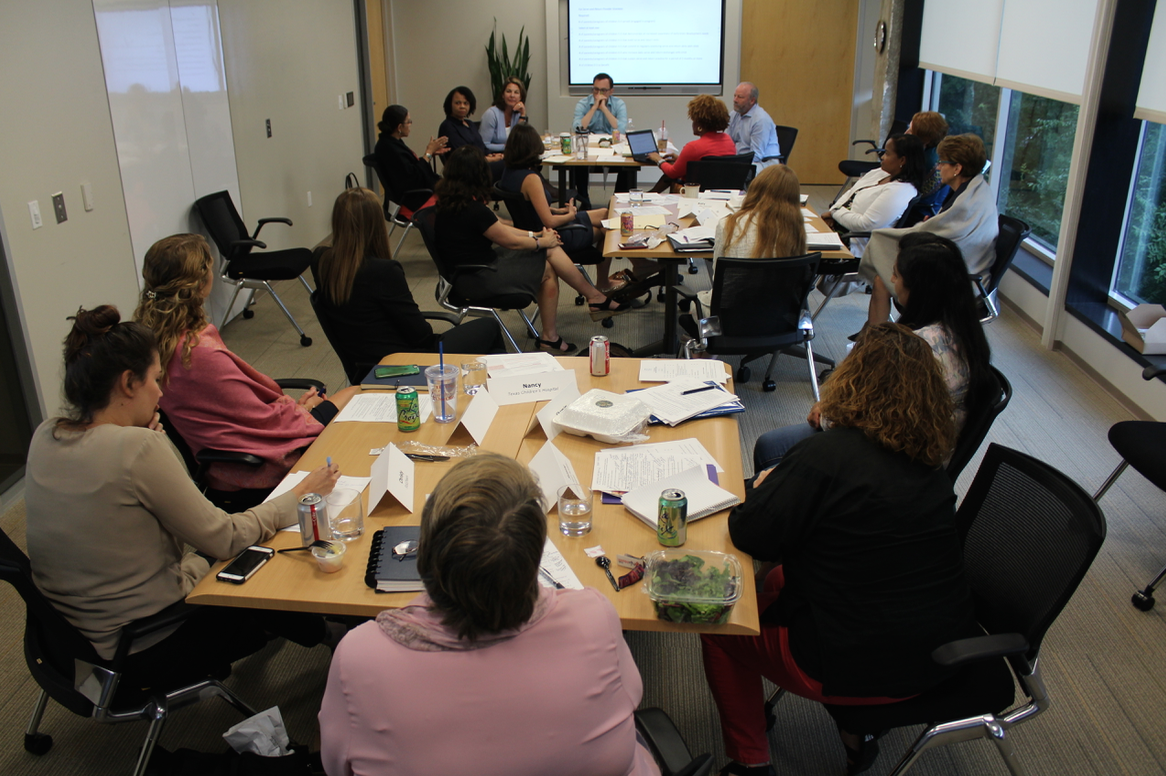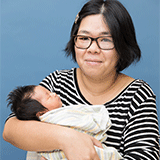
By Katy Butterwick, EHF Program Officer
From established programs to new pilot projects, organizations across the state are working with families to build strong brains for the youngest Texans. So, why don’t the leaders and staff of these organizations always know each other or understand more details about their similar work?
That’s one reason EHF recently organized a first-time meeting of grantees that are working to enhance early childhood brain development across the state:
- Children’s Defense Fund
- First3Years
- Nurse Family Partnership
- Rice University’s Baker Institute
- Rupani Foundation USA
- Santa Maria Hostel
- Texans Care for Children
- Texas Children’s Hospital
- Center for Health and Social Policy at the University of Texas at Austin
EHF’s goal for the meeting was to get feedback on finding common ways to measure success with early childhood brain development programs, and also help the grantees connect with one another.
“I walked away with a greater sense of the magnitude of this opportunity,” said Dr. Quianta Moore, a Fellow in Child Health Policy at Rice University’s Baker Institute and leader of a pilot project to help at-risk families learn invaluable skills to build their infants’ healthy brains.
EHF’s $1.1 million grant supports Moore’s project that will serve pregnant women and families who receive services at three Women, Infant and Children (WIC) clinics in Harris County.
Other grantees are working with parent/child engagement programs in low-income apartment complexes, programs for women with young children who have been impacted by trauma, home-visit programs for first-time pregnant women, and much more.
 EHF believes that establishing a culture of healthy infant brain development could be a game-changer in building the foundation for a healthy life for thousands of young Texans. A child’s first three years offer a once-in-a-lifetime chance to build a healthy brain and develop a curious and creative mind. Our goal is to ensure that children, particularly those in low-income and vulnerable families, have the best chance at a healthy life.
EHF believes that establishing a culture of healthy infant brain development could be a game-changer in building the foundation for a healthy life for thousands of young Texans. A child’s first three years offer a once-in-a-lifetime chance to build a healthy brain and develop a curious and creative mind. Our goal is to ensure that children, particularly those in low-income and vulnerable families, have the best chance at a healthy life.
That’s why our new strategic plan places a renewed investment in supporting pregnancies and optimal brain development during a child’s first three years. We hope this new focus results in health systems and families implementing leading practices for early childhood brain development.
“EHF has taken the lead, set the stage, and is providing the investment in this work. During the meeting I thought, ‘Wow, we could really do this. We can have a serious impact on children’s lives.’”
Dr. Quianta Moore
Rice University’s Baker Institute
Grantees told us that one way their projects and programs can make a more meaningful impact is by working together in a more unified way. During the meeting, leaders talked about big ideas and new opportunities to collaborate. The group not only shared their experiences and provided unique perspectives, but they also agreed on common ways to measure the outcomes of their success.
“The ability as a grantee to give feedback on an initiative’s indicators is exceedingly rare,” said Stephanie Rubin, CEO of Texans Care for Children. “The discussion reflected how challenging it is to meaningfully measure the impact of policy change and direct interventions on maternal-child interactions and the strengths and downsides of various approaches from the grantee’s point of view.”
EHF staff will now use many of the common metrics in upcoming grant applications and in other aspects of our work. We’re serious about getting feedback and we’ve already made changes as a result.
The group of grantees will meet again later this year and plan regular get-togethers in the future.